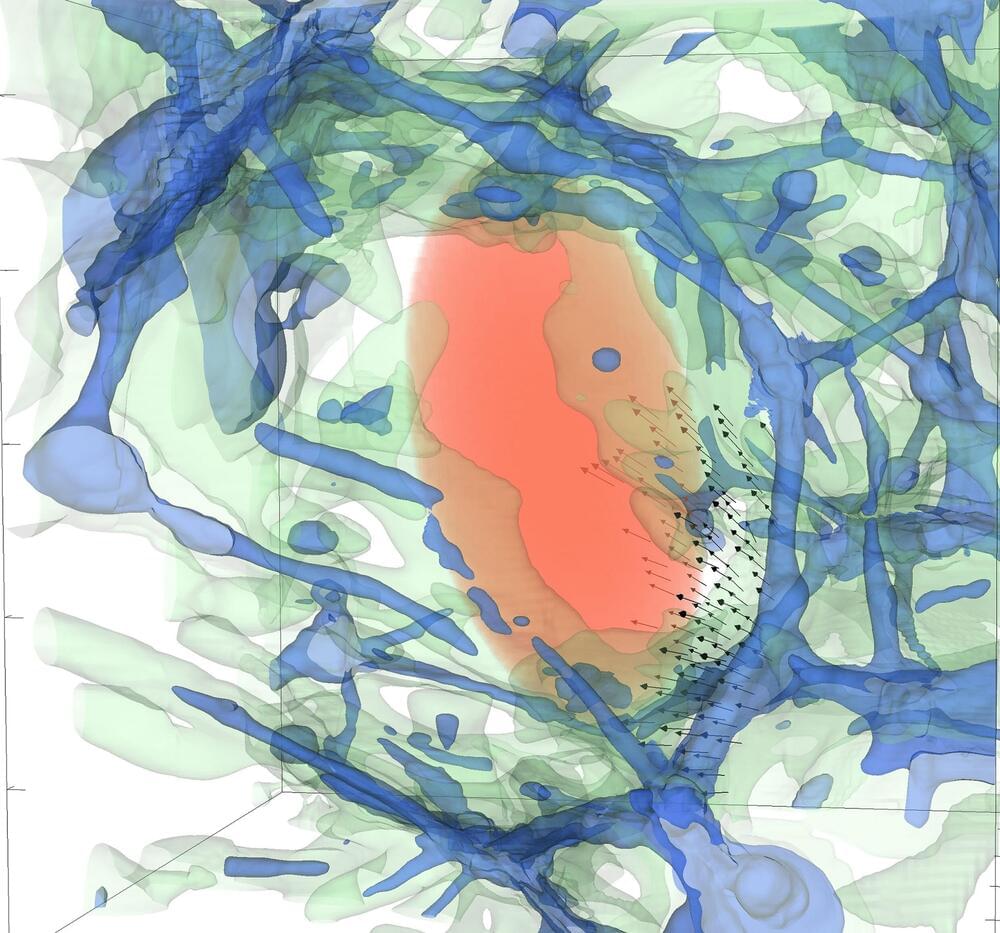The Computational Cosmology group of the Department of Astronomy and Astrophysics (DAA) of Valencia University (UV) has published an article in The Astrophysical Journal Letters, one of the international journals with the greatest impact in Astrophysics, which shows, with complex theoretical-computational models, that cosmic voids are constantly replenished with external matter.
“This totally unexpected result can have transcendental implications, not only for our understanding of the large-scale structure of the universe, but on the settings for the creation and evolution of galaxies,” explains Vicente Quilis, director at the DAA and head researcher for the project.
“Cosmic voids are the largest structures in the cosmos, and knowledge on their creation and evolution is essential to understand the structure of the universe,” says Susana Planelles, co-director of the research. Studying them as a physical occurrence has always been extremely complex precisely due to being large volumes with very low material content. From an observational point of view, analyzing the few existing items inside them is very hard, and the theoretical modeling of these occurrences is no less complex, which is why highly simplified descriptions of these structures are used.






